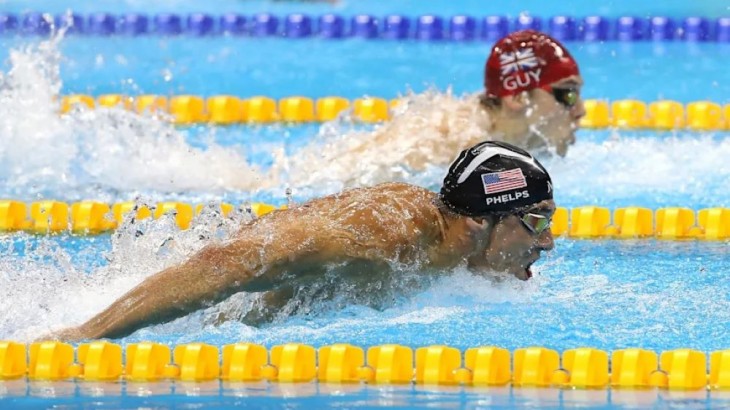Sports
22.07.2023
The history of Olympic swimming

-
Members of the discussion:
-
Last reply:
While humans have likely been swimming ever since they dipped their toe in the water, it’s believed that swimming as a practice dates back as early as 2500 BC.
The Ancient Egyptians were said to swim in the Nile for pleasure, while the Greeks and Romans used it as a means of training prospective soldiers.
But how did it become an Olympic staple? Let’s dive into the history of Olympic swimming.
Origins of the sport
The Ancient Egyptians were said to swim in the Nile for pleasure, while the Greeks and Romans used it as a means of training prospective soldiers.
But how did it become an Olympic staple? Let’s dive into the history of Olympic swimming.
Origins of the sport
Swimming started its sporting journey in the mid-19th century, when the world’s first swimming organisation was formed in London in 1837.
Inevitably, things soon became competitive and, in 1846, the first swimming championship was held in Australia. The race became an annual event, and it was an early indicator for the future success of competitive swimming.
Swimming has been part of the Olympic schedule since the very first modern Olympic Games in 1896. It’s one of only four disciplines to have been retained, appearing in every summer Olympics since – the others being athletics, artistic gymnastics and fencing.
Birth of Olympic swimming
In the early years, Olympic swimming events were male-only. Women’s events were introduced at the 1912 Games in Stockholm – although women initially only competed in two events, the 100m freestyle and 4×100m freestyle relay.
Experimental beginnings brought some rather unique events to those early Games. At the inaugural modern Olympics in Athens, swimming events included the 100m freestyle for sailors, which only members of the Greek navy could compete in.
Until the London 1908 Games, Olympic swimming events took place in open water. This left the swimmers at the mercy of the elements, contending with the weather and waves.
After being exposed to temperatures of 13°C in the Mediterranean (a modern Olympic pool is around 25-28°C) during the 1,200m freestyle race – in which he won gold – Alfréd Hajós said: “My will to live completely overcame my desire to win”, illustrating the precarious nature of the early swimming events.
Showing just how varied the Games have been throughout history, Hajós would later compete at the 1924 Paris Olympics in the art competition, when he and fellow countryman Dezső Lauber won silver in the sporting architecture category.
The modern era and rise of superstar athletes
The post-World War II era brought better technology, facilities and improved training techniques, resulting in significantly quicker times compared to the early, wave-fighting competitions.
Originally, female and male swimmers wore body suits, which increased resistance and slowed them down. As the sport progressed, swimwear become more hydrodynamic. Suits began to be made from materials such as Lycra, which reduced drag and, as a result, reduced lap times.
Competitive pools also saw great change during this period, which led to the move from outdoor to indoor tournaments. The introduction of drainage in Olympic swimming pools, marked lanes in 1924, and guidelines for pool depths all contributed to a better overall standard of competition in the years that followed.
The rise of the superstar athlete
This exciting era of development paved the way for superstar swimmers, the first of which was the USA’s Mark Spitz. Winning seven gold medals at the Munich Games in 1972, he became a household name on the back of his astonishing achievements.
Brilliant solo performances continued at Seoul 1988, when East Germany’s Kristin Otto became the first woman to bag six gold medals in a single Games, setting a new standard for aspiring Olympic swimmers.
These accomplishments have been bettered only by one man, Michael Phelps. Vowing to break his countryman Spitz’s record, he eclipsed it by one in Beijing 2008. Phelps claimed a grand total of eight golds – 36 years after Spitz’s era-defining performances in Munich – and later became the most decorated Olympian of all time with a total of 28 medals over four Games.
Photo: IOC
Original source
Original source
Discussion
More on the topic
The History And Origins Of Boxing
Replies:
More on the topic



